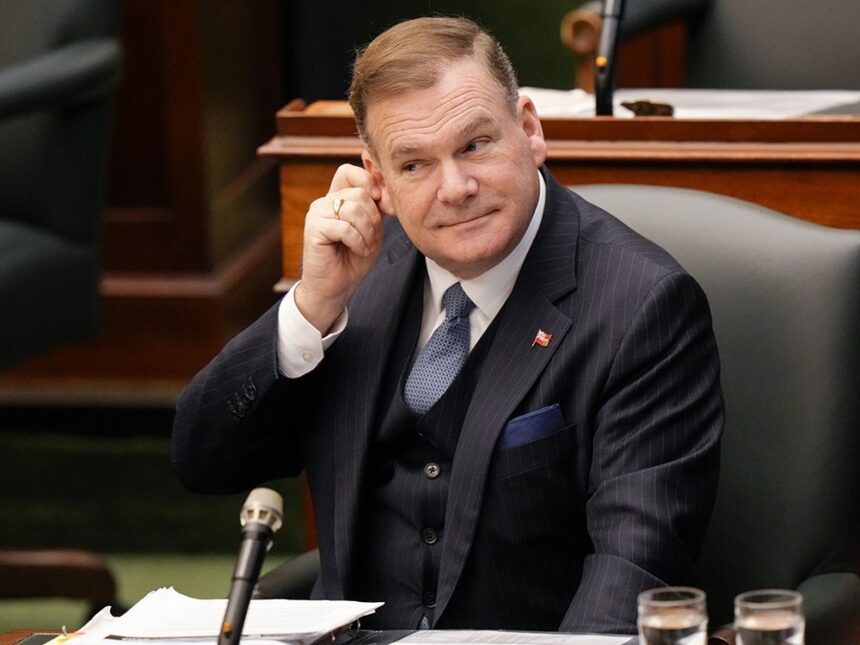Article – First Nations leaders in Ontario are turning up the heat on Environment Minister Andrea Khanjin after documents revealed her ministry attempted to derail legislation guaranteeing clean drinking water on reserves. The controversy has ignited calls for her resignation, placing the provincial government in a defensive position on what many consider a basic human right.
“When we found out the minister was actively working to block access to clean water, it felt like another broken promise,” says Chief Emily Wabigoon of Grassy Narrows First Nation, where residents have battled mercury contamination for generations. “Our children deserve better than political games.”
The bill in question, tabled as a private member’s initiative last spring, would require the province to ensure safe drinking water access across First Nations communities. Currently, 32 First Nations in Ontario remain under long-term drinking water advisories, some lasting over 25 years.
Internal documents obtained through freedom of information requests show Khanjin’s office drafted speaking points against the bill, calling it “financially impractical” and suggesting it would create “unrealistic expectations.” The revelation sparked immediate backlash from Indigenous leaders and opposition parties.
Khanjin defended her position yesterday during question period. “Our government remains committed to working collaboratively with First Nations and the federal government on water infrastructure,” she stated, arguing that water systems fall primarily under federal jurisdiction.
But Sol Mamakwa, NDP Indigenous Affairs critic, isn’t buying it. “This isn’t about jurisdiction—it’s about political will. People are getting sick from their tap water while ministers hide behind bureaucratic excuses.”
A recent report from the Parliamentary Budget Officer estimated fixing water systems across Ontario First Nations would cost approximately $3.2 billion—less than 2% of the province’s annual budget. The province has contributed only $30 million toward addressing these issues since 2018, while investing over $22 billion in highway infrastructure during the same period.
At Neskantaga First Nation, which has lived under a boil water advisory for 28 years—the longest in Canada—frustration runs deep. “My granddaughter has never known what it’s like to drink safely from a tap,” says elder Joseph Moonias. “In Toronto, that would be called a crisis. Here, it’s called Tuesday.”
Public health data reveals the human cost of the water crisis. Communities under water advisories report 30% higher rates of waterborne illnesses and skin conditions compared to communities with safe water systems. Children are particularly vulnerable, with higher rates of bacterial infections and developmental concerns.
Premier Doug Ford has attempted to distance himself from the controversy, suggesting the minister’s comments were taken out of context. “Nobody in our government opposes clean water,” Ford stated at an unrelated press conference. “We just need to make sure we’re working with our federal partners on solutions that make sense.”
The Assembly of First Nations Ontario has rejected this explanation, pointing to a pattern of environmental policy decisions that have disadvantaged Indigenous communities. “This isn’t an isolated incident,” says Regional Chief Glen Hare. “It’s consistent with a government that prioritizes development interests over Indigenous rights.”
Political analysts suggest the controversy could damage the Ford government’s credibility on reconciliation efforts. “The optics are terrible,” explains Dr. Melissa Thompson, political science professor at Queen’s University. “When basic needs like clean water become politicized, it undermines trust in the entire reconciliation process.”
Public opinion appears to support the bill, with a recent Angus Reid poll showing 76% of Ontarians believe the province should take greater responsibility for ensuring clean water on reserves, regardless of jurisdictional questions.
Opposition leader Marit Stiles has called for Khanjin’s resignation. “A minister who actively works against clean drinking water for First Nations communities has no place in government,” Stiles said during a press conference at Queen’s Park.
The controversy comes at a sensitive time for provincial-Indigenous relations, with several high-profile land claim negotiations ongoing and tensions remaining over resource development projects across the north.
For many First Nations leaders, the issue transcends politics. “Clean water isn’t a luxury or a partisan issue—it’s a necessity for life,” says Chief Wabigoon. “If Minister Khanjin doesn’t understand that, perhaps she should step aside for someone who does.”
As pressure mounts, all eyes are on Premier Ford’s next move. The clean water bill is scheduled for second reading next month, potentially forcing his government to take a clear public position on an issue that has become a litmus test for its commitment to Indigenous communities.






